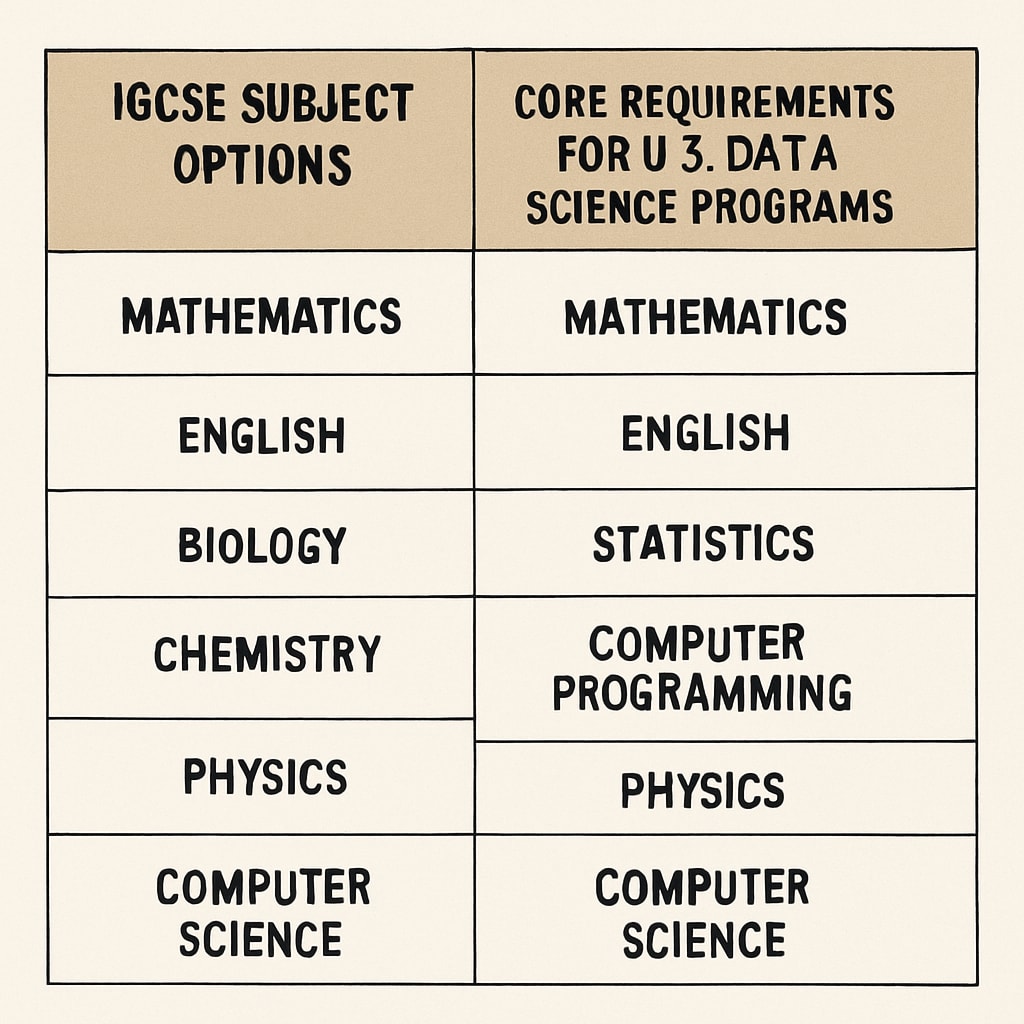The demand for skilled data scientists continues to grow globally, making U.S. universities a popular choice for international students seeking robust education in this field. Understanding the data science, international student application, and university admission requirements is crucial for students in the K12 stage aiming to secure a bachelor’s degree in data science from U.S. institutions. This article provides an overview of how international students can align their academic preparation with these requirements, focusing on the IGCSE curriculum and strategies for competitive college applications.
Understanding U.S. Admission Requirements for Data Science Degrees
U.S. universities typically assess applicants based on academic performance, standardized test scores, extracurricular activities, and personal statements. For international students, additional factors such as English language proficiency and curriculum alignment with U.S. standards are key. The data science field often requires strong foundations in mathematics, computer science, and analytical thinking.
- Mathematics: Courses such as calculus, statistics, and algebra are essential prerequisites for data science programs.
- Computer Science: Knowledge of programming languages like Python or Java is highly recommended.
- Language Proficiency: TOEFL or IELTS scores may be required to demonstrate English competency.
Students should also explore Advanced Placement (AP) or International Baccalaureate (IB) courses if their school offers these, as they can strengthen applications and provide college credits.

Aligning IGCSE Curriculum with U.S. College Expectations
The International General Certificate of Secondary Education (IGCSE) curriculum is widely used by international schools, and it offers a solid foundation for students planning to pursue data science degrees. However, aligning its content with U.S. university requirements is critical.
Here are ways to optimize the IGCSE curriculum for data science preparation:
- Choose relevant subjects: Students should prioritize mathematics, physics, computing, and economics to build foundational skills.
- Focus on depth: Advanced topics in mathematics and computing, such as algorithms and data structures, should be explored.
- Supplement learning: Online resources like Khan Academy and Coursera can help students deepen their knowledge in data science-related fields.
Additionally, transitioning to A-Level courses in key subjects can further strengthen academic credentials for competitive U.S. universities.

Practical Strategies for Building Competitiveness in High School
Beyond academics, extracurricular activities and personal projects can significantly enhance a student’s profile. Here are practical strategies to build competitiveness:
- Participate in STEM competitions: Science fairs, coding challenges, and math olympiads demonstrate aptitude and passion for technical fields.
- Internships or volunteer work: Gaining real-world experience in data analysis or programming can set students apart.
- Develop a portfolio: Students can create personal projects, such as coding applications or analyzing datasets, showcasing their skills.
- Engage in leadership roles: Leading clubs or collaborative projects reflects initiative and teamwork abilities.
Moreover, attending summer programs hosted by U.S. universities can provide valuable exposure to college-level education and campus life.
Final Thoughts and Recommendations
Preparing for a U.S. data science bachelor’s degree as an international student requires strategic planning from the K12 stage. Building a strong foundation in mathematics, computer science, and English proficiency, while aligning curricula like IGCSE with U.S. standards, is essential. Combining academic excellence with extracurricular involvement and personal projects will create a competitive application profile.
For more detailed information about the data science field, visit Data Science on Wikipedia. To explore the IGCSE curriculum further, refer to Cambridge IGCSE Official Website.
By taking proactive steps during high school, international students can position themselves for success in applying to top U.S. universities and pursuing impactful careers in data science.
Readability guidance: Use concise paragraphs and lists to summarize key points. Incorporate transition words to ensure smooth flow between sections. Maintain a mix of academic and practical insights for balanced content.


